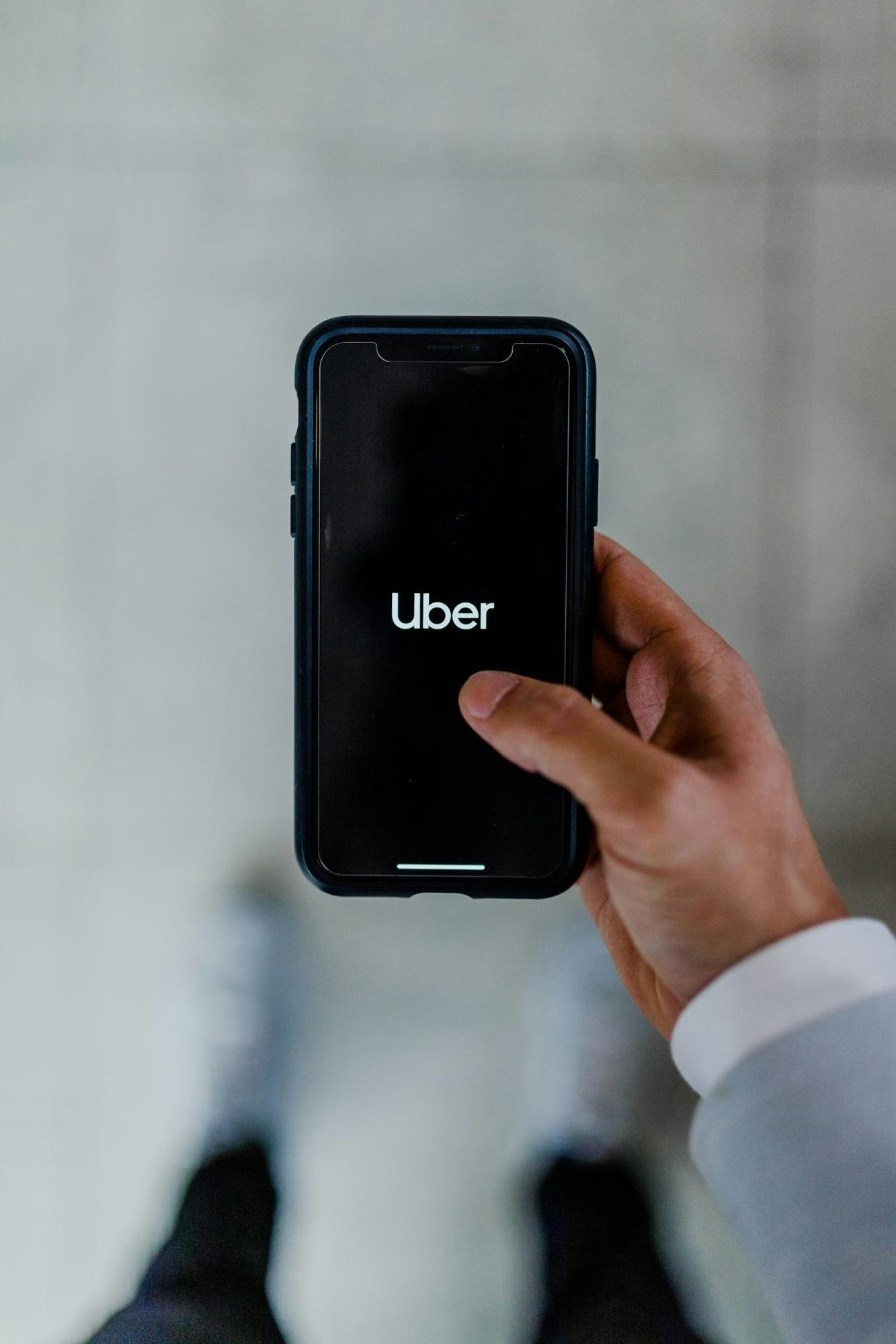What's the difference between a business owner and an entrepreneur?
These days, the terms are often used interchangeably. However, small differences in mindset and approach differentiate business owners and entrepreneurs. As a result, many business owners wrongly refer to themselves as entrepreneurs and vice-versa.
Neither role is any better than the other – they're just different. However, if you want to progress in your business journey, it can help to understand these differences.
So, are you a business owner or an entrepreneur, and which one do you want to be?
This article will explore the differences between business owners and entrepreneurs, along with plenty of business ownership examples. But first, let's set the scene.
What Is a Business Owner?
Legally speaking, a business owner is – hold onto your hat – anyone who owns a business. They're the legal proprietors of a business – or one of the proprietors, anyway. However, the term "business owner" usually refers to people who own a business and run it
Business owners can be people who run an owner-operated small business or those who own and run a million-dollar company with many employees.
A business owner may delegate tasks and responsibilities to others. And they may work alongside employees and earn a salary. However, regardless of the company's size, they have ultimate control over the business.
10 Common Business Owner Titles
Business owners go by many different titles, depending on their responsibilities. Here's a quick list of 10 business owner titles – the last six aren’t exclusively business owner titles, but they’re roles that business owners often take on:
- Owner
- Proprietor
- Founder
- Chief Executive Officer or CEO
- Managing Director
- President
- Director
- Principal
- Managing Partner
- Chairperson
Now, entrepreneurs are also business owners, but not every business owner is an entrepreneur. So, what's the difference?
Business Owner vs. Entrepreneur
In short, business owners typically build enterprises around a proven idea and model, such as restaurants and fashion brands. On the other hand, entrepreneurs take on more risk by pursuing an innovative idea that solves a common problem, such as Uber providing a way to order cabs with an app.

That said, many of the differences between business owners and entrepreneurs can be subtle, and we can interpret the terms in different ways. So, to help illustrate the differences here's a quick comparison of six key business aspects.
1. Motivation
Business owners and entrepreneurs often start businesses for different reasons.
Business Owners
A business owner might start a business because it was a natural progression, they saw an excellent opportunity, or wanted to work for themselves. Maybe they got into it for the money. Or perhaps they love doing something so much that they decide to build a business around it.
For example, someone who loves hair and makeup might open a salon in a busy neighborhood that doesn't yet have one. Or someone who's worked for an auto repair shop for a long time might step out and start their own to earn more money.
Entrepreneurs
On the other hand, an entrepreneur is more likely to start a business because they stumbled on a new way of doing things, want to challenge the status quo, or create a positive impact.
As mentioned above, the founders of Uber created an entirely new way to order cabs. In another example, the entrepreneur Blake Mycoskie started the shoe brand Tom's with an innovative buy-one-give-one offer to provide shoes to those who don't have any.

2. Innovation
Similarly, there are differences in how business owners and entrepreneurs approach ideas and innovation.
Business Owners
Successful business owners aren't too concerned with groundbreaking ideas or innovation. They learn from the best in their industry and apply proven principles to succeed. They understand their business intimately and know their target market inside-out. And they're focused on growing their business and serving their customers.
For example, an ecommerce business that sells apparel is following a tried-and-tested business model. The business owner will succeed by establishing a valuable brand and offering superior products and services to a well-defined target market.
Entrepreneurs
Alternatively, entrepreneurs think big and dream bigger. They're the leaders of their industry or niche, coming up with innovative ideas that change the status quo. They work on ideas that haven't even been tested yet. Their target market must be taught what their product or service is and how to use it.
For example, Airbnb's founders spotted an opportunity that no one else had seized. Here's what happened: The founders couldn't afford their rent, but they knew that a big design conference was coming to town and all the local hotels were full. So, they convinced some conference-goers to stay with them on air mattresses and charged them a small fee.

3. Growth
Typically, business owners and entrepreneurs also have a slightly different mindset when it comes to growth.
Business Owners
Some small business owners are happy maintaining their current level of income. For example, many small mom-and-pop shops are quite content with one or two stores and aren't interested in expanding state-wide and then nationwide.
Other business owners are keen to grow their company as much as possible. They do this by investing in their marketing, growing their workforce, and expanding their product and service offerings.
Business owners grow step-by-step and consolidate their improvements each step of the way. For example, a local cafe's business owner may have plans to grow their business by opening another location downtown.
Entrepreneurs
Entrepreneurs strive for explosive growth. They don't want to grow steadily – they want to go state-wide, nationwide, and then go international as fast as possible. They don't try to grow using the same methods as other businesses. And they reinvent the rules to carve out a new market for themselves to dominate the competition.
Compare the above example of a local cafe with Starbucks.
Starbucks started with one single store in Seattle's Pike Place Market. However, Starbucks didn't just sell coffee like its competitors. They turned coffee into a luxury experience that made the business stand out from the crowd – and helped grow the brand to an international behemoth with 30,000 retail stores in 80 markets.

4. Mindset
When comparing entrepreneurs vs. small business owners, it's essential to consider how they think.
Business Owners
Business owners are typically concerned with managing and growing the company. Consequently, they have to-do lists that focus on improving the business, managing employees, and increasing sales. When working, business owners spend most of their time managing today and some of their time planning for the future.
For example, a dropshipping business owner is most concerned with improving their online store, scaling their marketing efforts, and finding profitable product ideas.
Entrepreneurs
In contrast, entrepreneurs are more future-focused. Like chess players, they're always thinking ten moves ahead. They hire other people to manage the business's day-to-day tasks as soon as possible. Then, they focus on scaling the company.
To continue with our example, an entrepreneur might start a dropshipping business because it's a cost-effective way to start an online business. However, they have plans to move beyond their startup business – they want to create something unique.
This entrepreneur could create a valuable dropshipping brand and generate profit to reinvest in their business. They could then expand their product lines to include original designs they've created themselves. They would use dropshipping as a stepping stone to fund their vision, such as an international fashion brand that sells original designs made from innovative, eco-friendly material.
For a real-life example of this type of expansion, look at Amazon.
Jeff Bezos, the founder of Amazon, didn't set out to sell books online – he set out to create "the everything store." Selling books online was just the first stepping stone. Since then, Amazon has expanded into virtually every product category imaginable, as well as computer hardware, cloud technology, and media streaming services – to name just a few.

5. Risk
The risks of business ownership are widely known. However, small business owners and entrepreneurs tend to approach risk differently.
Business Owners
Business owners don't bet the farm. They take calculated, incremental risks to grow their business steadily over time.
For example, An ecommerce brand might start selling online using organic marketing methods – i.e., 'free' marketing methods, like social media marketing. Once they make some sales and have validated their products, they could reinvest their profits into Facebook advertising. This way, if the products don't work out, they haven't blown all their cash on ads.
Successful business owners are cautiously optimistic – perhaps, they may take on a small business loan that they're confident they can pay back.
Entrepreneurs
Entrepreneurs bet the farm – regularly.
They jump in with both feet and risk it all on an unproven idea. They're evangelical about their idea and often look to source money from investors.
Often, these ideas don't work out. Occasionally they do.
The entrepreneur Richard Branson started a scrappy independent record label and expanded it to a billion-dollar empire. The Virgin Group now includes an airline, a chain of hotels, financial services, and a media company, to name a few. However, each of these expansions required massive risk.
For example, when Branson started Virgin Airlines, it put massive huge pressure on Virgin Group's other businesses. In Branson's words:
"We were sailing close to the wind and were almost sunk before our first trip when a bird flew into the engine during a test flight. We had to use our cash reserves to buy a new one."
6. Attachment
Typically, Business owners and entrepreneurs view businesses in different ways.
Business Owners
Business owners are often emotionally attached to their business somehow – if only to make a profit. Some would never even think about selling their business. Some may even name the company after themselves or use their family name.
Other business owners aren't particularly attached to their company, but they value it because it allows them to call the shots and be in control of their destiny.
Consequently, small business owners tend to stick to what they do best.
For example, a business owner might start a blog to earn money from affiliate marketing by promoting other services and earning a commission on the sales they help to produce. This business owner could name the website after themselves and write every blog post from their perspective. They could focus on becoming an established blogger and growing their income through writing and affiliate marketing.
After a few years, perhaps they'd have made a name for themselves as a blogger, hired a few employees, and grown their income significantly.
Entrepreneurs
Entrepreneurs are usually more concerned with their idea and the impact they want to make more than the companies themselves. They're not attached to any particular way of doing things. Once they've succeeded in developing their vision, they look for the next big idea to work on.
To continue with our example, an entrepreneur who succeeds at affiliate marketing would quickly outsource their business tasks and pursue additional ideas to expand. Perhaps they would start selling dropshipped products through their website also. Maybe they'd build a YouTube channel around their niche to promote affiliate links, with a plan to develop the content into an online course.
You get the idea.
For a real-life example, take Uber. The founders continue to expand beyond ridesharing into other areas like food delivery. The leaders of Uber aren't content with creating the best ridesharing platform they can – they see Uber as a global delivery platform with the ability to sell anything and everything to their 103 million active users.
Entrepreneurs often have an "exit strategy," too. Perhaps they have plans to sell their website or online store on a platform like the Exchange Marketplace. Then they could realize the capital in their business and invest it into a new idea.
Summary: Entrepreneurs vs. Small Business Owners
If you run a business – or want to start a business – it can help to understand the difference between business owners and entrepreneurs.
In summary, successful business owners learn from the best in their industry, use a proven idea, take measured risks, and grow their business incrementally. They often start businesses for practical purposes, such as doing something they love for a living, gaining more independence, or earning more money.
On the other hand, entrepreneurs are driven by a desire to challenge the status quo. They have original ideas that are untested, and they take on risk when they pursue these ideas. Entrepreneurs often want to make a large impact by finding innovative ways to scale and expand quickly.
Again, neither role is superior to the others. Both business owners and entrepreneurs step outside of the status quo, grab life by the horns, and do things on their own terms.
Still, are you a small business owner or an entrepreneur? Which one do you want to be? Let us know in the comments below!
Want to Learn More?
[ad_2]
Source link
